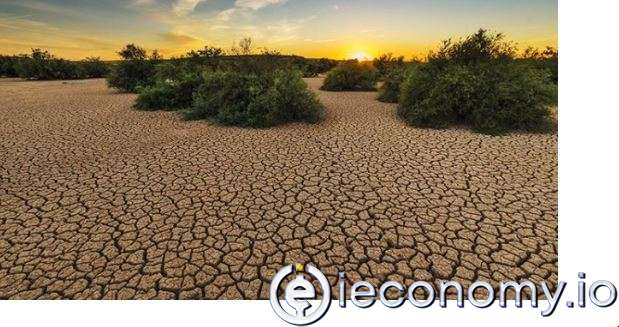10554
0
It was stated that climate-induced migration is a risk at the door
Levent Kurnaz stated that resources should be protected very well, adding that the risk of climate-related migration is at the door.

Yazar: James Gordon
Yayınlanma: 30 Nisan 2022 05:42
Güncellenme: 2 Mart 2026 22:37
It was stated that climate-induced migration is a risk at the door
Boğaziçi University Climate Change Research Director Prof. Levent Kurnaz stated that resources should be protected very well, adding that the risk of climate-related migration is at the door. Boğaziçi University Climate Change Research Director Prof. Levent Kurnaz defined the circular economy with the words "Resources are running out. Don't throw it away, use it again and again, change it, reuse it, if not, give it to someone else, and if it doesn't, transform it". Emphasizing that the risk at the door that will affect the world is migration due to the climate crisis, Kurnaz explained in the program what the role of the circular economy is in conflict with the climate crisis, why it is needed and what needs to be done: “The circular economy plays a very important role in tackling the climate crisis. Because the resources in the world are not infinite and unlimited. Those who worried about the climate crisis and its consequences embarked on serious research around the world in 1972. Research has been done on what to do to ensure that the resources are not exhausted and are used reasonably.50 years of story
The importance of circular economy was seen. In fact, when looked closely, it was seen that the use and disposal had a 50-year history. Something bought before that is used, when it gets smaller, a younger sibling or another child would wear it. It is possible to say this not only for clothes, but also for all kinds of goods. Because we are a generation that has seen flowers planted in plastic containers. But in the last 50 years, the "disposable" trend has developed. Here is a system that draws attention to reuse in a cyclical sense. Because the resources in the world are not infinite and unlimited. In the circular economy, it is said, "Use, reuse, repair, use once again. If not, use it in another job, turn it into something else" But there is still a long way to go here. Nobody is tying to do this. On the other hand, the disposable system is collapsing. That's why we have to do this, move on to a circular economy. If the world population was around 1 billion. Maybe there would be no need for a circular economy, but today, 8 billion people live in the world. There are developments in population control, but still, limited resources are not enough.30 million immigrants
The most important problem in the near future is the immigration problem. In 10 years, 700 million people will migrate because of lack of water. A significant part of those immigrants will go through our country. If one day we find 30 million people at our door, that will be a difficult problem. The European Union (EU) saw this and took its measures. It took measures to protect its borders. But we can find it at the door while we are dealing with our own internal problems. This should be treated as a purely security issue. I'm not talking about today's immigration. This is a political situation today. But future immigrations won't be like that. People who come because they are hungry or dehydrated will not go back. Political migration is not my concern, but migration caused by climate conditions will be our problem. There is no work there, unfortunately. However, trouble is approaching with a bang.Nobody gave up on coal
In addition, necessary steps are not taken to give up on dirty resources. The Ukraine war has seriously exposed Europe's dependence on Russian gas. They also rolled up their sleeves to find a solution to this situation. But Europe started to buy gas from the USA instead of Russia. England just allowed the operation of a coal mine. What does this mean. It means that it will produce coal for at least 30 or 50 years. However, the climate crisis is gaining a more risky dimension with each passing day.İLGİLİ HABERLER





European stocks soared and focus shifted to German retail sales after Powell's speech!

Forex Signal For TRY/USD: Inflation Slowdown in November.

Forex Signal For GBP/USD: Bullish Trend Still Not Breaking While Recovery Continues.

Forex Signal For EUR/USD: Starry US Data Points to Higher Fed Increases.

Forex Signal For BTC/USD: Downside Continues as Bitcoin Recovery Moves Less.
En Popüler Haberler
Yorum Yap
Yorumlar
Henüz yorum yapan yok! İlk yorumu siz yapın...